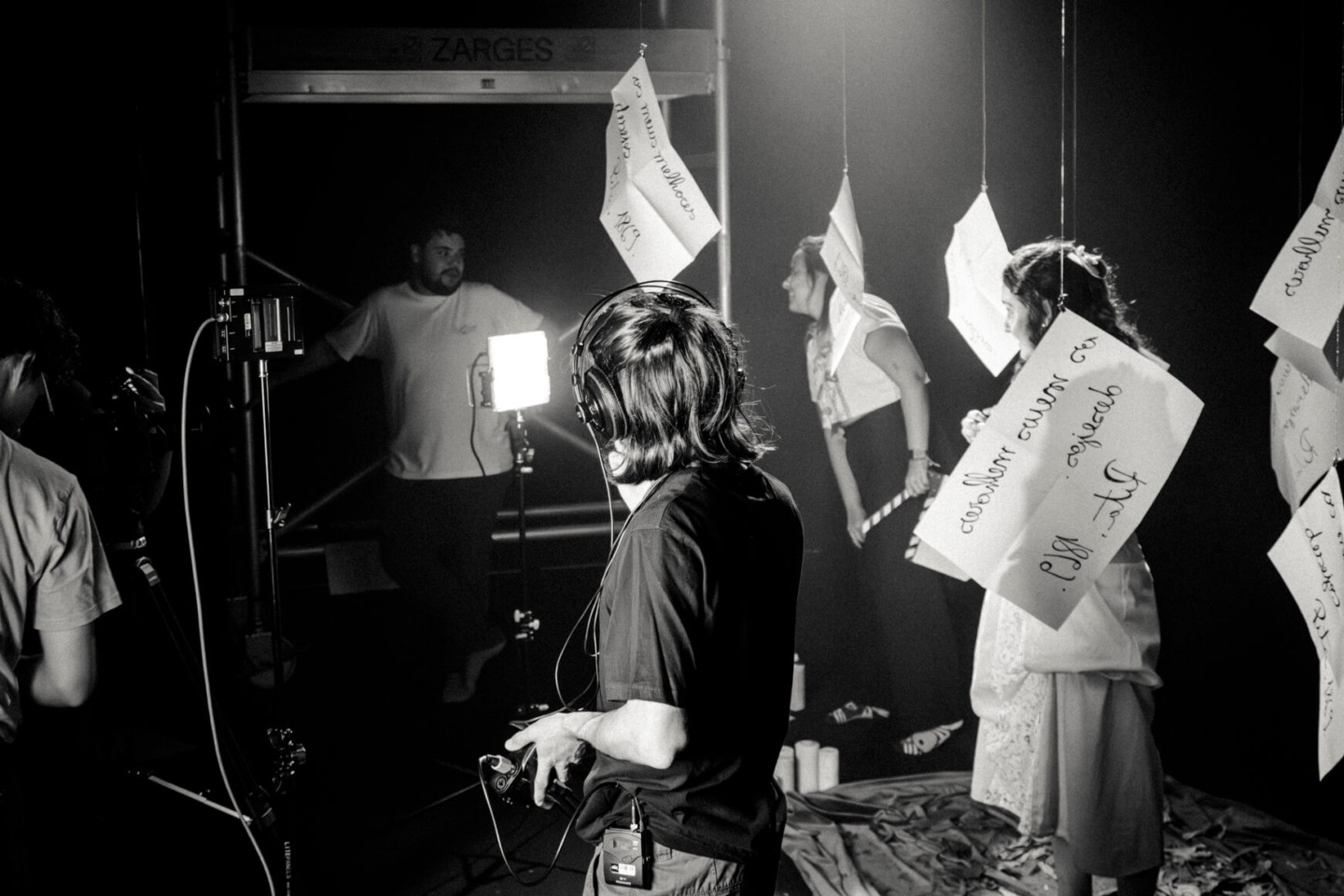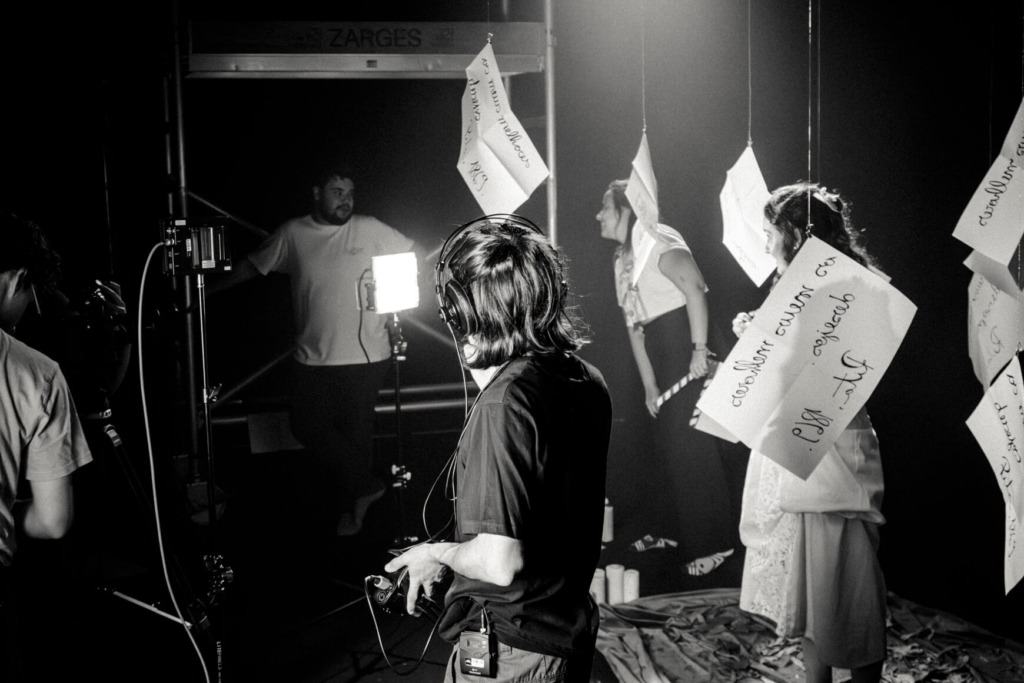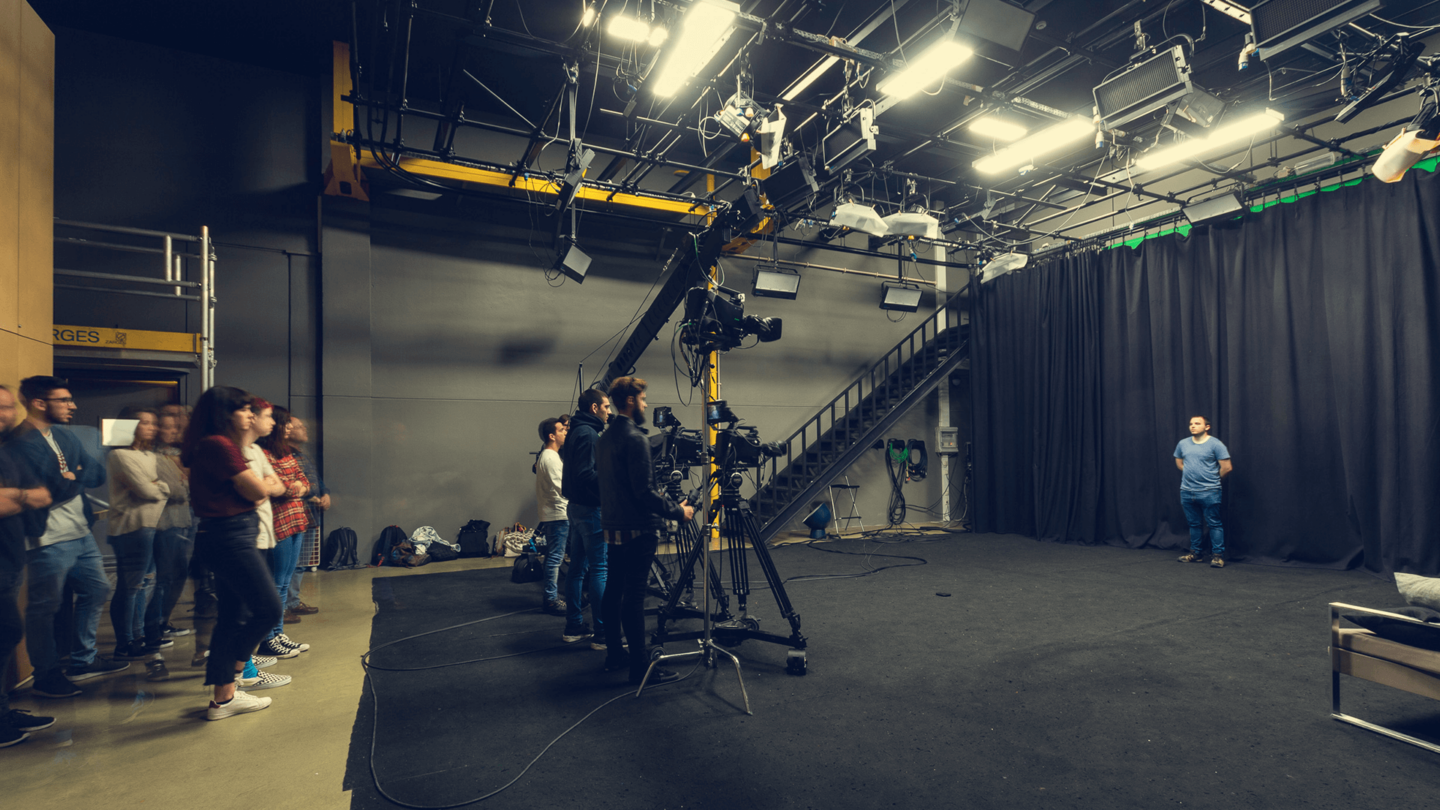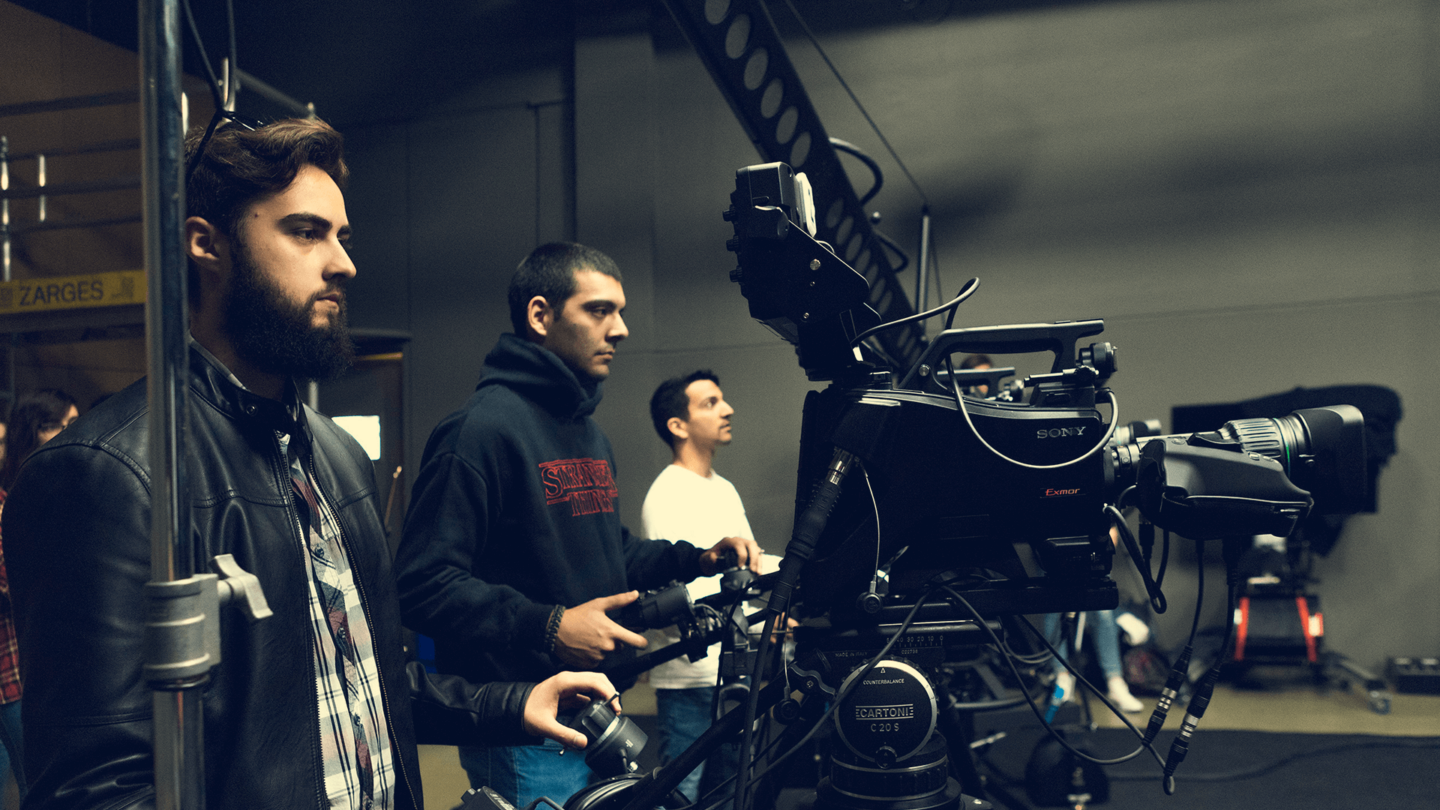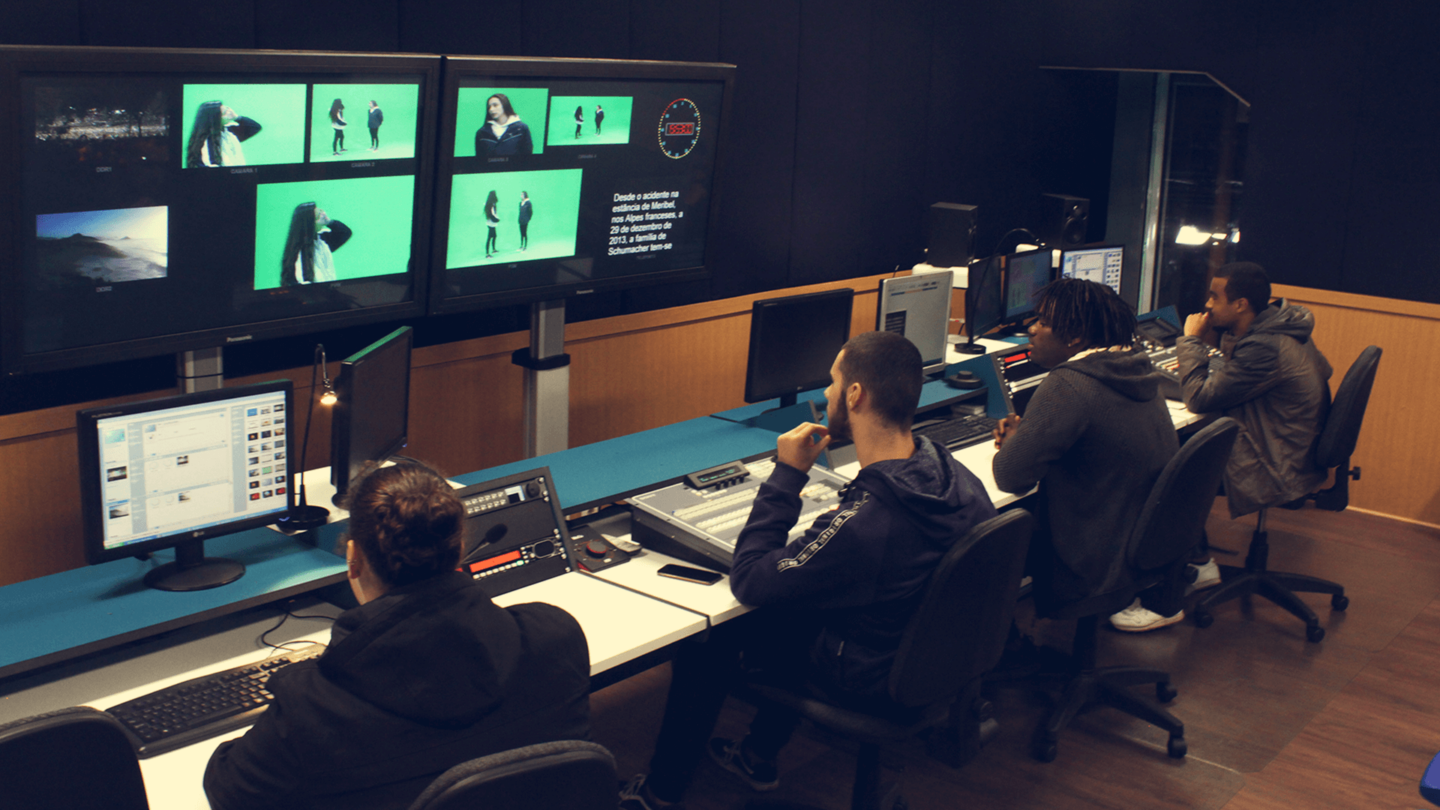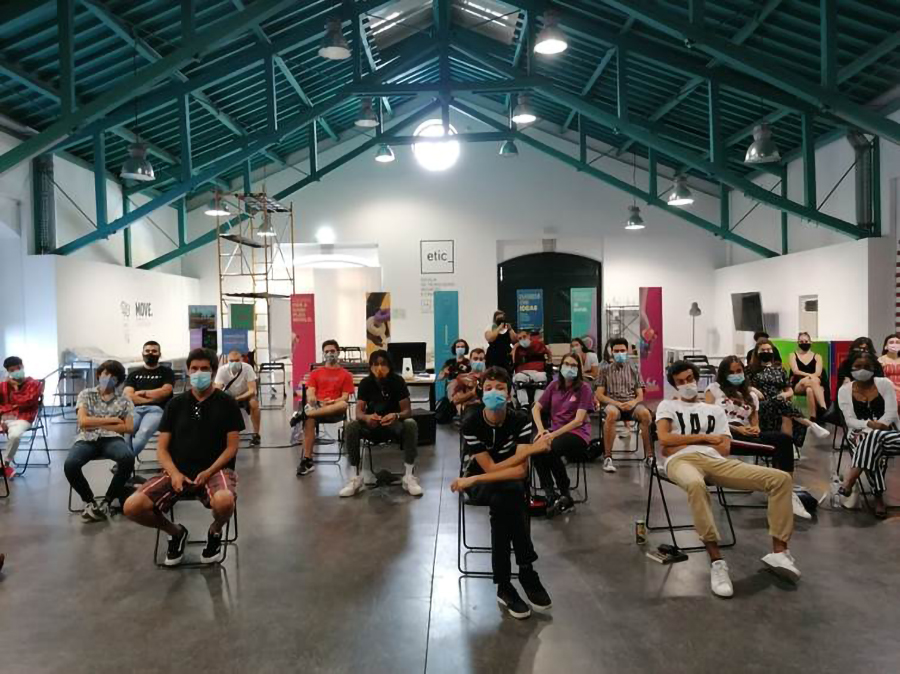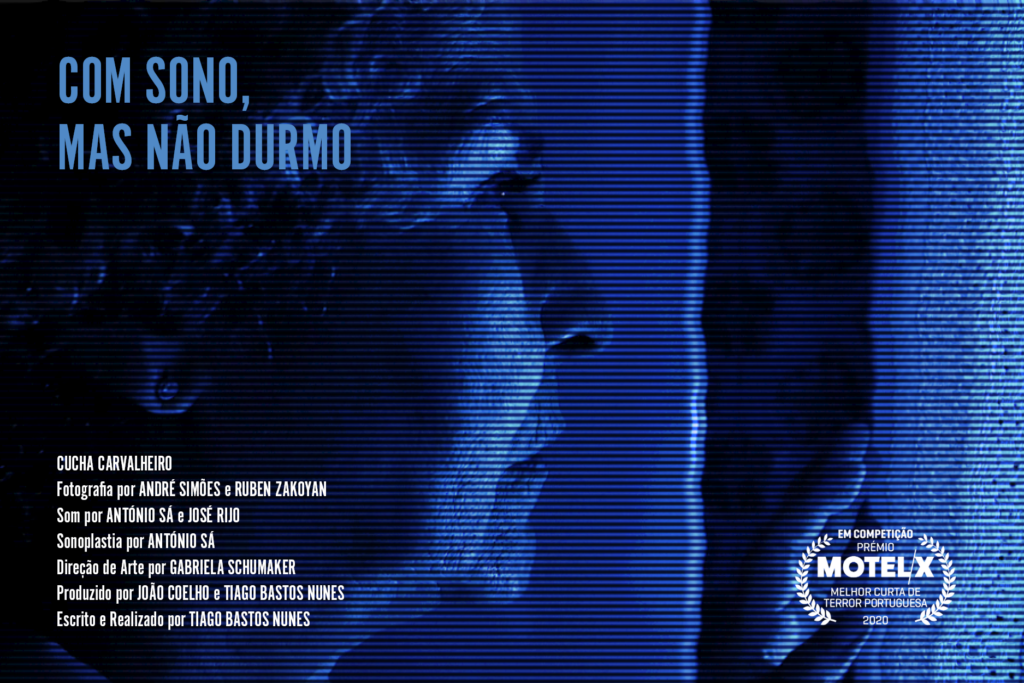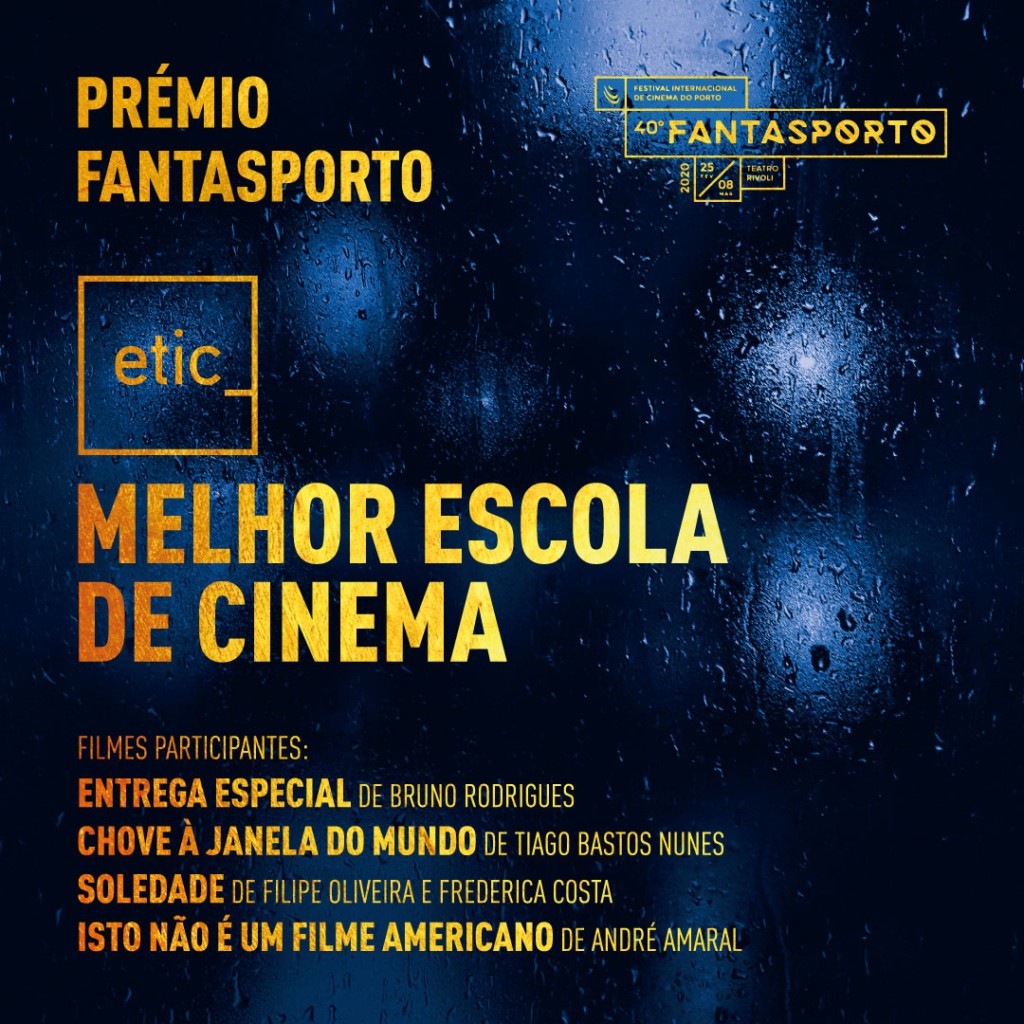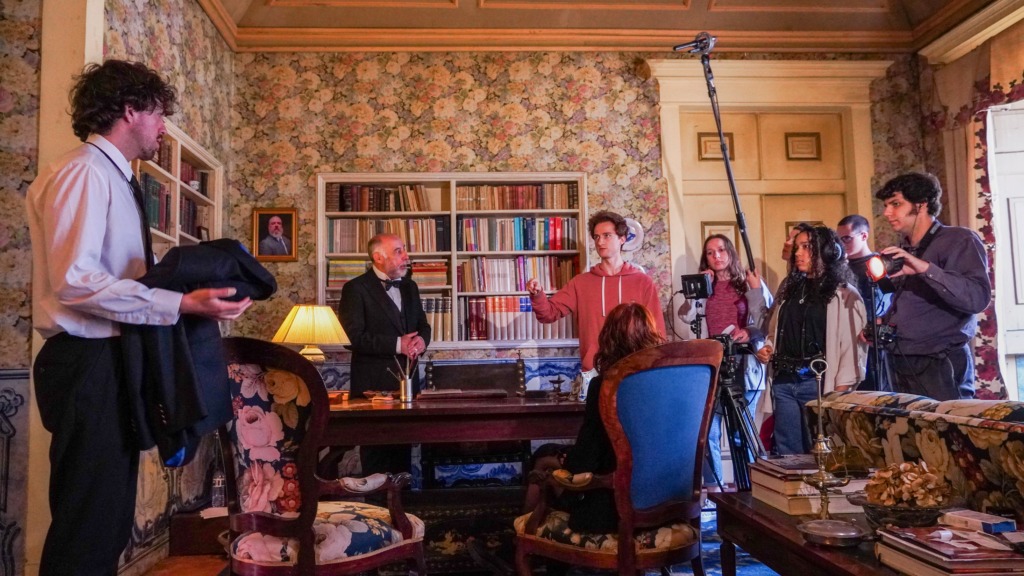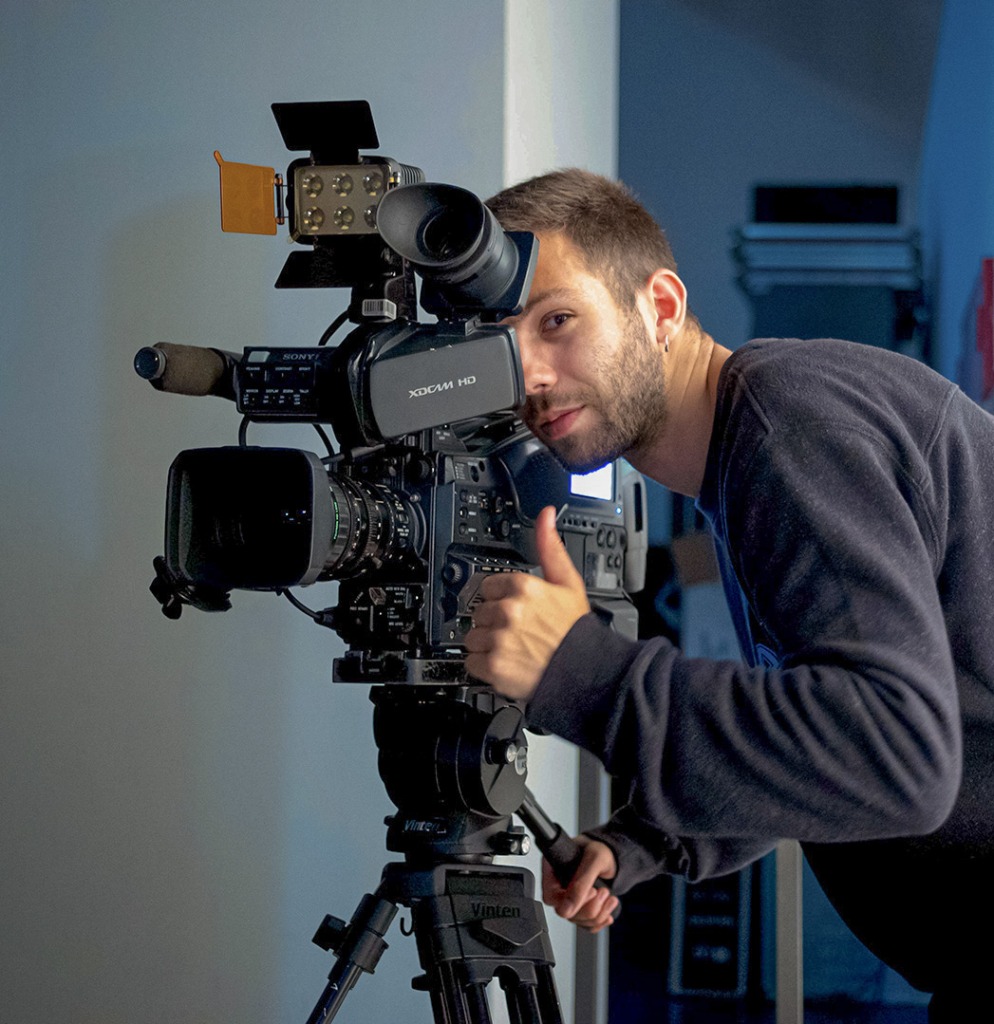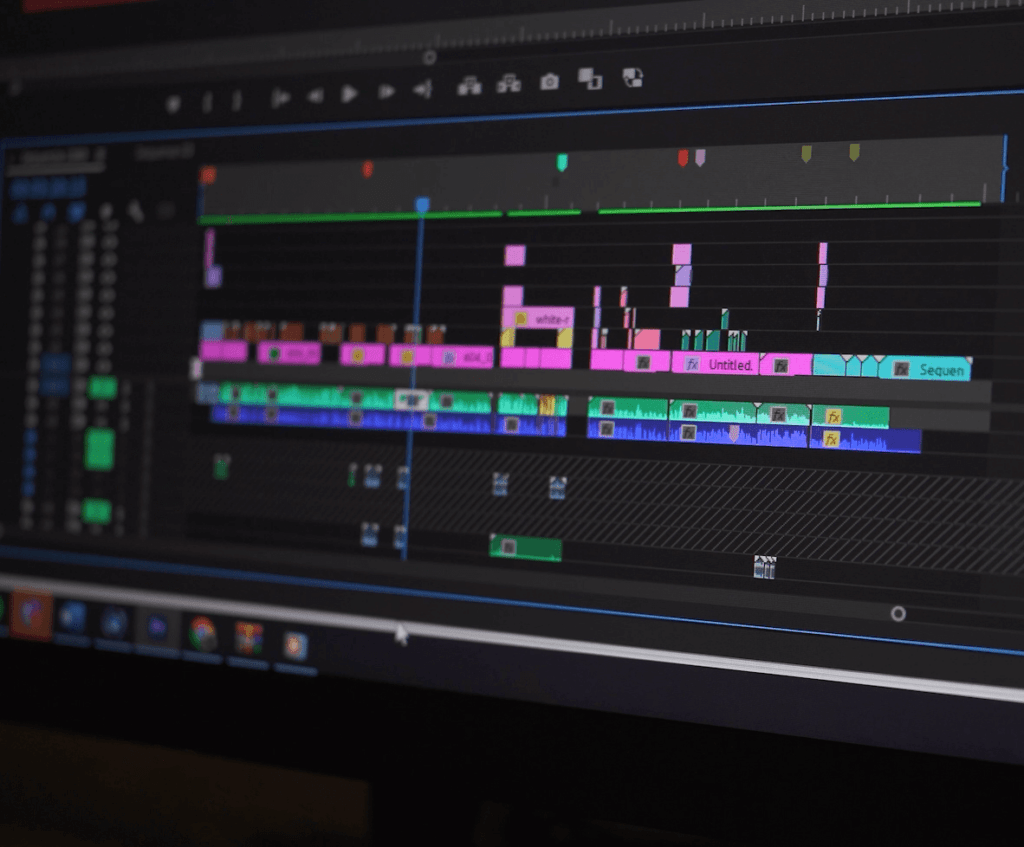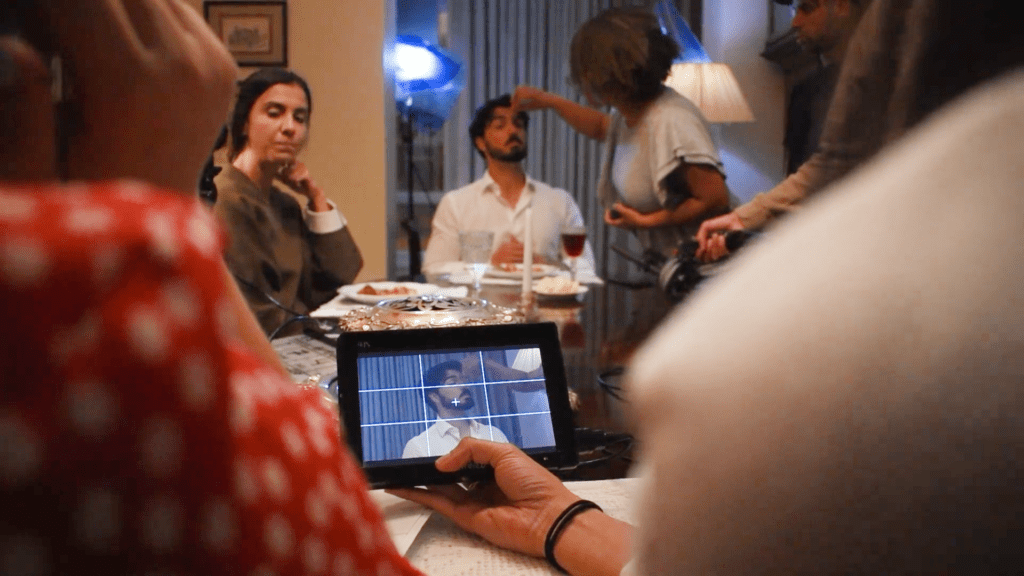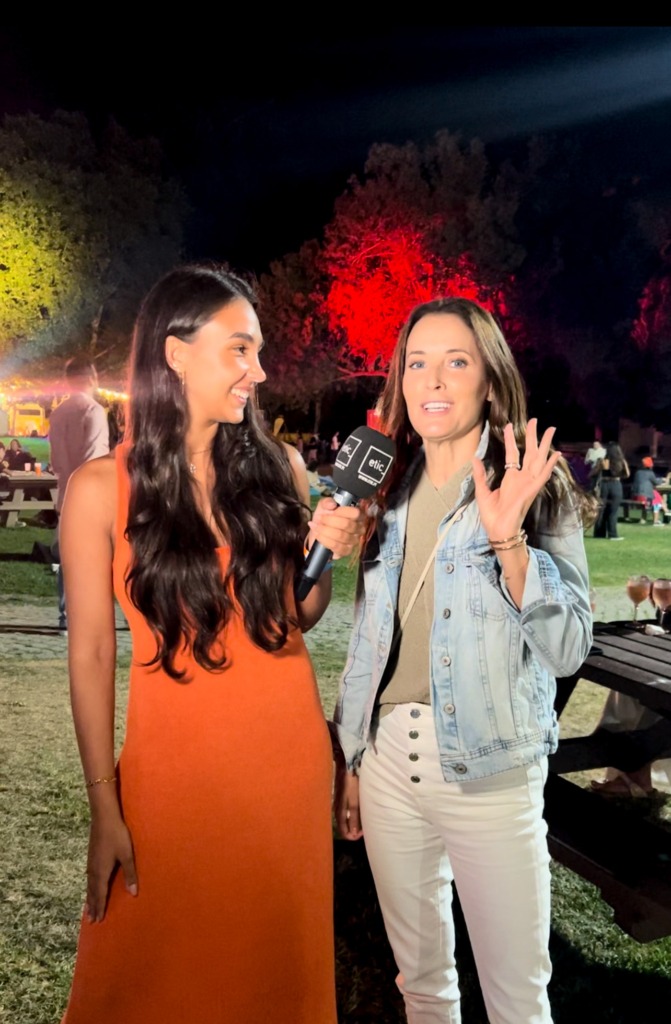Intro
It is going to be a special year to further develop your practice and thought, as well as to deepen your awareness of the skills and methodologies needed for an international career. Film and TV is an extraordinary field of ever new possibilities for contemporary study and creation, and for innovative production and business.
You will have the chance to develop your existing knowledge and expand your creative, technical and professional skills. You will also be part of a worldwide community of students and I hope you enjoy your time and take full advantage of this.
Our aim is to create courses which prepare the students to successfully overcome the professional challenges ahead by promoting a fruitful relationship together with the community, businesses and institutions. ETIC encourages the talent and professionalism of the students so as to tighten their relation to the market.
ORIENTED TOWARDS AN INTERNATIONAL CAREER.
This Top Up Course offers a unique blend of critical studies and professional creative practice. It provides the fundamental skills you need to pursue an international career in various fields of the Film & Television industry.
STATE-OF-THE-ART STUDIOS AND EQUIPMENT.
ETIC is equipped with state-of-the-art technological resources to which students have access for school work or for their personal projects. Students feel free to use the school as their work space, their studio, the place where they can create freely.
You will have access to a modern Multimedia Video Studio with a fully equipped broadcaster regie, Sony’s 4 HD studio cameras with image control, a Jimmy Jib, Ross video mix, 2D and 3D Xpression graphics system, virtual system with Augmented Reality from Pixotope and Motion Capture from Xsens. An innovative technology that allows a total intergeneration of all graphic tools in real-time and in multi-camera.
A CREATIVE ENVIRONMENT CONNECTED TO THE INDUSTRY.
The school is also known for its creative environment and its closeness between students, teachers and staff. There is a strong link to the industry, which results in many partnerships with companies and organizations. Real life briefs and market challenges are often included in school projects. On a regular basis, the school endorses the participation of students in competitions, events and festivals where they can practice side by side with experienced professionals.
UPGRADE YOUR EXISTING QUALIFICATIONS.
Apply to a Top Up course so you can get your British full honours degree, a worldwide recognized diploma delivered by Solent University Southampton at ETIC, in Lisbon, the sunny, safe and cool capital of Portugal.
FAQ
British education allows you to obtain a university degree with the completion of a year of study if you have previously completed a two year course, or level 5 qualifications (120 ECTS). Applicants with relevant professional training and experience are also welcomed. This curricular year is called Top Up Year and allows you to achieve a Bachelors Degree.
Top-up courses are equivalent to the final year of an undergraduate degree and allow you to ‘top up’ an existing qualification into a full honours degree. Top-up degrees enable students to develop their knowledge, skills and understanding of a particular topic while also receiving a Bachelors Degree, an internationally-recognized diploma.
Those who have completed a two-year course or have obtained a Level 5 qualification (120 ECTS) can apply for a Top Up Year.
In the majority of universities in the United Kingdom, such as Solent University Southampton, or at ETIC, in Lisbon, in partnership with that prestigious university.
The Top Up Courses at ETIC are perfect for those who have backgrounds in areas such as Art and Design, Multimedia, Digital Image, New Media, Digital Communication, Illustration, Web Design, Film and Television, Editing, Audiovisual Production, Animation, Graphic Production, Motion Design, Visual Effects, Sound, Music, among others.
The course curriculum is entirely developed by Solent University and is taught by British and Portuguese teachers in both in-class and online lessons. The B.A. Bachelors of Arts diploma is awarded by Solent University Southampton.
ETIC is a reference school in the creative fields. Project-oriented, it combines technique, creativity, and personal and professional development. Its connection to the industry links school projects to the reality of the labor market.
The school has state-of-the-art technological resources, such as HD video and virtual reality studios, professional HD régie, sound studios, photo labs and studios, design and computer labs.
Yes, one of the following tests:
Duolingo English Language Test (115 overall with minimum of 95 in each component or equivalent), IELTS 6.0 (minimum score of 5.5) or TOEFL IBT 80 (minimum score of 20).
The capital of Portugal is a real cool destination for millions of Europeans. The city has exceptional cultural attractions, a relaxed lifestyle and wonderful weather — you can go to school in the morning and surf in the afternoon on amazing beaches 15 minutes away.
Lisbon hosts numerous music and film festivals, technology events like the Web Summit, and a large ecosystem of startups and creative hubs. Living here is affordable, easy and fun. Lisbon is one of the safest capitals in Europe and Portugal ranks third safest country in the world.
What will you study
On this module you will analyse and debate social, political and cultural contemporary issues, relating them with the contribution screen has to such analysis and debate. To do so, you will learn how to critically think about concepts and approaches that characterize contemporary culture. You will be challenged to uncover how our identities shape screen culture and are shaped by it, exploring representations and impacts that some topics have in this mutual relation between our contemporary selves and the screen.
You will develop your skills and competences on research applied to these questions present in our cultural context, producing analysis of film and television case studies.
ETIC Unit Leader: Fabrícia Valente
Solent University Southampton Unit Leader: Darren Kerr
Production, distribution, exhibition and consumption of film and television in the global age is the main theme of this module. You will emerge in contemporary film and television studies, through a range of dynamic topics, debates and screenings considering some of the most important and critical issues that circulate contemporary film and television markets around the world. You will analyse and reflect about globalization and cultural centralization, in a local and global perspective. Promoting reflection and critical thinking, you will be challenged to create an original and independent line of research, considering team and collaborative work in a project for a screen festival in the global age.
ETIC Unit Leader: Tatiana Macedo
Solent University Southampton Unit Leader: Terence McSweeney
This module is about yourself, specifically about your ability to recognize and reflect on the skills you have at this point of your academic life. The goal is to enable you to be capable of deciding the best ways to communicate those skills to a potential employer in the creative industries and beyond.
You will make and present a portfolio that reflects your skills and yourself, promoting your self-awareness and critical thinking approaches to your own work. Your reflections will be important in identifying strengths and weaknesses in a way that can allow you to promote a career plan and develop goals and objectives. You will also learn how to plan, research and share your portfolio looking for professional development and determination of your own career objectives.
ETIC Unit Leader: Pedro Florêncio
Solent University Southampton Unit Leader: Jonathan Plummer
This module is the starting point of your Final Major Project. Here you will produce the research base that will support the development of your Final Major Project. You will develop your research skills at the same time you will be challenged to arouse critical and analytical thinking that will turn theoretical concepts and investigation into a practical instrument to develop your project.
You will learn how to conduct research and research methodologies to widen your knowledge and understanding of your chosen subject for the Final Major Project. With the outcomes of this research, through the critical analysis of a wide range of sources, you will determine your own perspective to apply in Final Major Project work.
ETIC Unit Leader: João Cunha
Solent University Southampton Unit Leader: Stuart Joy
From the outcomes of Final Major Project Research, in this unit you will create your final project. It can be a written or a production-based project (dissertation, script, fiction, documentary, television pilot). This will be the culmination of your journey in the top up year, and should reflect your knowledge, understanding and skills around film and tv from the last three years. This project is a demonstration of critical, creative and professional skills by exploring and deepening the subject of your research, turning it on a practical and technical work, according to film and tv professional practices. You will undertake this project to aim the same goals (such as pitch, publication or production) you can find in the industry.
ETIC Unit Leader: Francisco Merino & Nélia Cruz
Solent University Southampton Unit Leader: Stuart Joy
Tutors
Etic Course Leader
Pedro Senna Nunes
Etic Course Leader
I lead festival and culture programmes linked with cinema, dance, media, performance and technology. I started teaching 25 years ago, and have been at ETIC since 1997. I have worked in the school as a coordinator of the image and sound department and as a creative director for a significant number of years. I currently teach in the film making field – Cinema, Performance and Media degrees. Units taught include ‘Documentary Film, ‘Film Making’, ‘Creative Process’, ‘Body and Technology’, ‘Video Dance’ and ‘Experimental Film’. For many years I co-supervised final film projects, presentations and debates with students in a national and international context. I really like the exercise of shooting and editing images and sounds in a real experimental way. I regularly go to the theatre, contemporary dance and music performances and I dedicate all my free time to my actual research between movement images and performing arts. I love spending time in the countryside and near the ocean, learning more about the aesthetical impact of nature. Essentially, I love travel and discovering the strong details that change my surroundings.
Unit Leader
Fabrícia Valente
Unit Leader
Fabrícia Valente is a PhD researcher at Architecture of Contemporary Metropolitan Territories – ISCTE, Lisbon. With a degree in Architecture (pre-Bologna Declaration) from Universidade de Évora (Portugal) in 2007, and further education in the fields of Photography (from Instituto Português de Fotografia, Portugal), Video (from CENJOR, Portugal) and Planning and Producing Temporary Exhibitions (from Fundação Eugénio de Almeida, Portugal). Lines of interest and research include the multidisciplinarity of Architecture and its possibilities of interface, namely with Visual Arts, Cinema and Music.
Her Professional activity is divided between curatorship, critique, writing and cultural mediation. Fabrícia was Curator and Head of Programmes for the KAIROS Pavillion (Pavilhão KAIROS) and developed the educational project O Gesto como Tradução (Gesture as Translation) for the Dar Lugar ao Acontecimento programme held in the Architecture and Theatre cycle of the Almada Theatre Festival.
Unit Leader
Tatiana Macedo
Unit Leader
Tatiana Macedo is a trans-disciplinary artist of Portuguese and Angolan parentage, born in Lisbon in 1981. The artist/director works and exhibits regularly in a transdisciplinary way, within the context of the Visual Arts. Tatiana Macedo studied at the Faculty of Architecture, University of Lisbon (2000), at Central St Martins College of Art & Design, University of the Arts London (Foundation Studies in Art & Design, 2001 and Bachelor of Fine Arts, 2004) and at the London College of Communication (Studio and Location Photography, 2004). After returning to Lisbon she is selected for the Gulbenkian Creation and Creativity Programme in Photography in 2005. In 2009 the artist enters the 1st Master Programme in Visual Cultures Anthropology at the Faculty of Human and Social Sciences – Nova University of Lisbon.
In 2017 she is invited to undertake a residency at Iwalewahaus, University of Bayreuth, Germany, in the scope of the “Exodus Stations #2” project where she develops a new video installation entitled “Mixed Feelings: A Composition for Chamber Orchestra”. In 2018, she is invited by curator Delfim Sardo, to create a new piece for Culturgest Porto which originates her first expanded fiction film: “We Have Run Out of Names for the Storms”. She participated as a director in two collective projects with C.R.I.M film productions: “Cadavre Exquis”, 2015 and “Contágio”, 2021. In 2020 the Interseccion Contemporary Audio-visual Art Festival (Coruna, Galiza) dedicates a retrospective to Macedo’s film and video works. Alongside her artistic practice, she develops her academic research through written essays but also audio-visual and interdisciplinary ones, questioning perceptions and discursively rehearsing new relations with image, gesture, sound, time and place / non-place within the production of knowledge. Tatiana Macedo is represented in various public and private art collections in Portugal and abroad.
Unit Leader
João Cunha
Unit Leader
Graduated in Psychological Sciences, I began, in 2004, my work in education on creative areas while developing academic investigation in parallel. I’m part of the teams of ETIC, as teacher in Cinema/Television HN course, and of EPI as a pedagogic consultor, candidates profiling and courses composition, teacher and responsible for individual mentoring service to students. In this school, I work transversally with Animation, Graphic Design, Photography, Acting, Multimedia, Musical Production, Sound and Video courses. I took my academic training in psychology to the pedagogical context where I cross it with intervention in professional, artistic and technical education. Along this connection with education, I highlight particularly in my work with students, the dedication to individual and collective creative processes, the strong investment in personal development, critical-analytical thinking, writing and methodological reflection, which I also apply in collaborations with groups of artistic works, outside school contexts, and with private practice of counselling.
Unit Leader
Pedro Florêncio
Unit Leader
Graduated from ESTC (National School of Film and Theatre), he has a master’s degree in Cinema by FCSH-UNL (Faculty of Social and Human Sciences at Nova University Lisbon) and holds a PhD in Arts from the University of Lisbon. In 2020, he published the book “Sculpting Space – The cinema of Frederick Wiseman”, based on his PhD dissertation. He is a researcher at CEC (Centre of Comparatist Studies of the University of Lisbon).
He currently teaches “History of Cinema” in the Sciences Communication Graduation Course at FCSH, “Portuguese and Brazilian Cinema” under the CIEE international course program, “Documentary” at ETIC (Professional School of Innovation and Creation Technologies) and “Spatial Representation”, “Story Board” and “Visual Narrative” at EPJP (Jean Piaget Professional School). He is the coordinator of the National Cinema Plan at IDS (Institute for Social Development).
In 2011, he made the short film “Banana Motherf*cker”, which received several awards at international venues. In 2014, he made the experimental documentary “Where my friend made a painting”, screened at several national and international festivals since then. In 2017, he made the medium-length film “Afternoon”, which received the Special Jury Prize at DocLisboa 2017 National Competition. “Day Shift” is his first feature film, which premiered worldwide at DocLisboa 2018 and was commercially released in 2019.
Unit Leader
Francisco Merino
Unit Leader
I graduated in Communication Sciences in 1998, and, since then, I have worked in education as well as in media production, mainly for Television. I teach Production, and a variety of Project and Workshop courses at the University of Beira Interior, mostly in the Film Undergrad degree, but also in the master’s of Multimedia, Journalism and Digital Games Design. I have been, for over ten years, the head of Film Production at this University and, since 2016, I am the Coordinator of the Film Undergrad Course. I obtained my PhD with a thesis about Transmedia Storytelling, focused on the key role that movies can play within a transmedial structure or, in a broader sense, within a media ecosystem shaped by Cultural Convergence. Digital Storytelling as thus became a key feature of my research and teachings, from interactive fiction to expanded cinema, even though I never abandoned my former research subjects, that included television fiction and film production. I favour a multidisciplinary approach that combines traditional media production techniques with hypermedia and transmedia frameworks and tools.
Nélia Cruz
Nélia Cruz holds a PhD in Literature and Culture (“Screenwriting as a cultural practice: the screenwriter gaze”) from the University of Lisbon. She is Specialist in Audiovisual and Multimedia Communication by IPLisboa, IPLeiria, IPPorto. Has worked as a TV Producer in Rádio e Televisão de Portugal (RTP) and also as a Production Director and Creative Director in independent film production (Zepelin Filmes and Sparkle Animation). Her research interests include screenwriting studies and audiovisual narratives, having been invited, as a speaker, to several conferences on these subjects. She is an investigator in English Studies at the University of Lisbon (CEAUL), where she produces work related with memory and nostalgia; and in the Centro de Literaturas e Culturas Lusófonas e Europeias (CLEPUL) where the project 25/S Television Studies, Communication, Culture and Aesthetics of Audiovisual Arts is being developed with her coordination. She is a screenwriter and a scriptwriting teacher having written, among other works, the awarded short film The Giant. She is currently developing the animation feature film Melpomina (supported by ICA for writing and development 2020)
Admissions
You can apply for a Top Up Year if you have completed two years of training or a Level 5 qualification (120 credits).
Portfolio, Showcase or Showreel.
One of the following English tests:
Duolingo English Language Test – 115 overall with minimum of 95 in each component or equivalent.
IELTS – minimum score of 6,0 (5.5 in all components).
TOEFL IBT – minimum score of 80 (20 in all components).
The same English language entry requirements are mandatory for all applicants.
Tuition fees
PROMOTIONAL FEES 2021/22
MORE AFFORDABLE NOW!
Alumni ETIC:
Registration: €600,00 + 12 consecutive monthly payments (€416,72).
Or 14 consecutive monthly payments (€357,18).
Discount: 5.5% with full payment of the course (€ 4 750.20).
New Students:
Registration: €600,00 + 12 consecutive monthly payments (€441,68).
Ou +14 consecutive monthly payments (€378,58).
Discount: 5.5% with full payment of the course(€5 035,10).
Citizens without fiscal residence in Portugal:
Registration: €600,00 + 30% of the entire course cost on enrollment.
Contact the Admissions Office (Secretaria) for detailed information and conditions.
